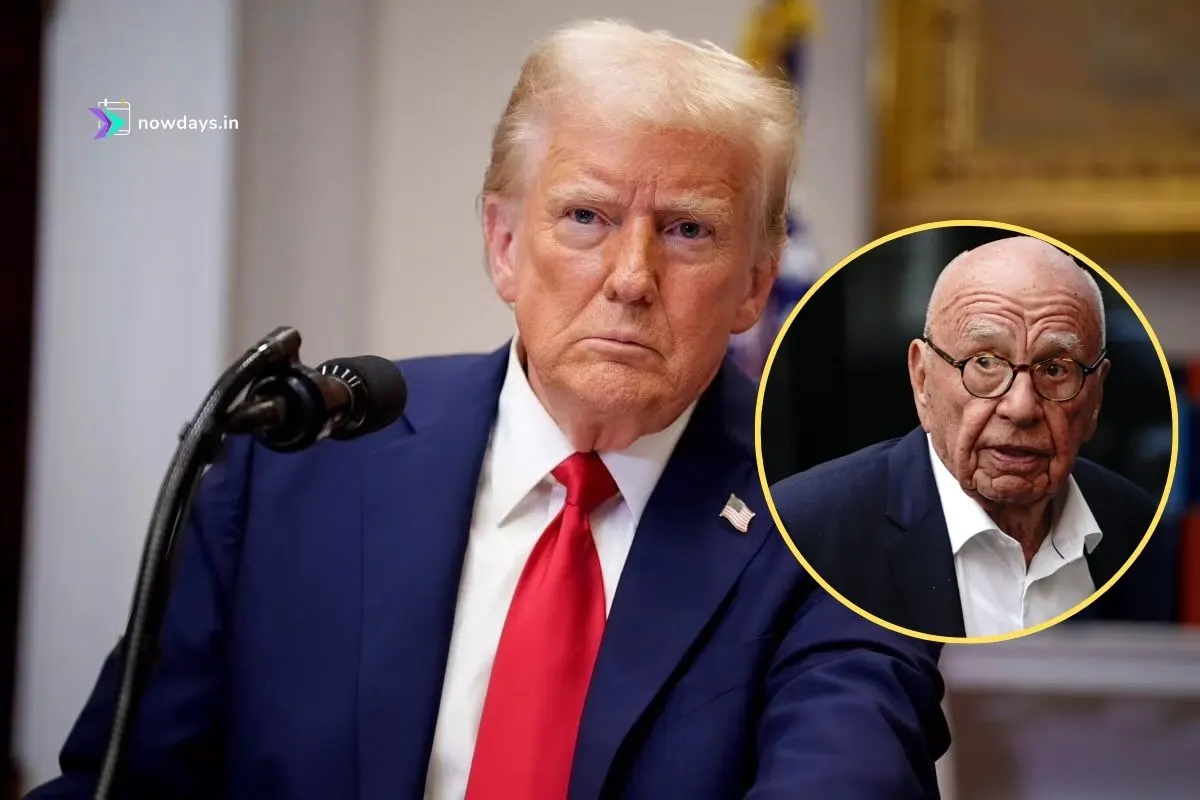For the first time since taking office, President Donald Trump finds himself facing an unprecedented challenge not from Democrats or mainstream media, but from the very heart of his political movement. The Make America Great Again (MAGA) base, long considered Trump’s most reliable support system, has erupted in revolt over his administration’s handling of the Jeffrey Epstein files, creating the deepest fracture yet within the Republican coalition.

What began as a promise to deliver transparency has morphed into a political crisis that threatens to undermine Trump’s authority within his own movement. The controversy centers on the Justice Department’s July 7 memo concluding that convicted sex offender Jeffrey Epstein died by suicide and maintained no “client list” of powerful associates1. This revelation contradicted years of conspiracy theories and promises of explosive revelations that Trump and his allies had cultivated.
The Promise That Became a Political Trap
During his 2024 campaign, Trump repeatedly vowed to release the complete Epstein files, feeding into widespread theories about government cover-ups and elite complicity. Attorney General Pam Bondi amplified these expectations in February, claiming on Fox News that Epstein’s client list was “sitting on my desk right now to review”. The administration even invited conservative influencers to the White House for what they called “Phase 1” of the Epstein files release.
However, after what the Justice Department described as an “exhaustive review” of evidence, officials concluded there was no “incriminating client list” and no credible evidence that Epstein blackmailed prominent individuals4. The department announced it would release no further documents, directly contradicting months of promises and speculation.
The MAGA Base Strikes Back
The backlash was swift and unprecedented. Conservative commentator Tucker Carlson, speaking at a Turning Point USA event, delivered a scathing rebuke: “The fact that the US government, the one that I voted for, refused to take my question seriously and instead said, ‘Case closed. Shut up, conspiracy theorist,’ was too much for me”5. This marked one of the first times a major MAGA figure had publicly criticized Trump so directly.
The revolt spread across the conservative media landscape and into the halls of Congress. House Speaker Mike Johnson, despite being a Trump loyalist, broke ranks by calling for transparency: “We should put everything out there and let the people decide it”. Even more significantly, Representative Marjorie Taylor Greene, one of Trump’s fiercest congressional supporters, expressed frustration: “It’s definitely a full reversal on what was all said beforehand, and people are just not willing to accept it”.
Trump’s Counterattack: Calling Supporters “Weaklings”
Faced with mounting criticism, Trump launched an extraordinary counteroffensive against his own base. In a Truth Social post that sent shockwaves through MAGA circles, he wrote: “Their new SCAM is what we will forever call the Jeffrey Epstein Hoax, and my PAST supporters have bought into this ‘bullsh*t,’ hook, line, and sinker”. He dismissed concerned supporters as “weaklings” and declared: “I don’t want their support anymore!”9
This marked the first time Trump had so publicly attacked his own supporters, signaling the depth of the crisis. The president’s attempt to reframe the Epstein controversy as a Democratic “hoax” fell flat with many in his base who had been promised transparency for years.
The Wall Street Journal Bombshell
The controversy reached a new dimension when The Wall Street Journal reported on a sexually suggestive letter allegedly sent by Trump to Epstein for his 50th birthday in 2003. The report described a drawing of a naked woman with Trump’s signature placed suggestively, accompanied by the message: “Happy Birthday — and may every day be another wonderful secret”.

Trump vehemently denied the report, claiming “I never wrote a picture in my life. I don’t draw pictures of women”. However, internet researchers quickly uncovered multiple examples of Trump’s drawings that had been sold at charity auctions over the years. The president filed a $10 billion defamation lawsuit against the Journal and Rupert Murdoch, but the damage to his credibility with supporters was already done.
Paradoxically, the Journal report may have provided Trump with a lifeline. Many MAGA supporters rallied to defend him against what they viewed as media persecution, temporarily unifying a fractured base around their shared distrust of mainstream media.
Congressional Rebellion Takes Shape
The revolt extended into Congress, where a bipartisan coalition began forming around the issue of transparency. Representative Thomas Massie of Kentucky, often a Trump critic, joined forces with Democrat Ro Khanna of California to introduce a discharge petition that would force a House vote on releasing all Epstein files. The petition garnered support from several Republicans, including Marjorie Taylor Greene and Eric Burlison18.
This congressional maneuver represented something unprecedented: Trump’s own party members were willing to use procedural tools to defy his wishes. The discharge petition, which requires 218 signatures to force a floor vote, had gained momentum with at least 10 Republicans expressing support.
Democrats, sensing opportunity, began pressing their advantage. They repeatedly forced procedural votes on Epstein file releases, putting Republicans in the uncomfortable position of choosing between loyalty to Trump and demands from their constituents.
The Administration’s Damage Control Efforts
Recognizing the threat to his political standing, Trump attempted various forms of damage control. Following the Wall Street Journal report, he instructed Attorney General Bondi to seek the release of grand jury testimony related to the Epstein case. This move was seen as an attempt to show action while avoiding the release of more potentially damaging materials.
The Justice Department filed motions in Manhattan federal court to unseal grand jury transcripts, but legal experts noted this process could take months and might yield limited new information. Critics viewed it as a token gesture designed to placate supporters without delivering the transparency they demanded.
Meanwhile, the White House rejected calls for a special counsel to investigate the Epstein matter. Press Secretary Karoline Leavitt stated definitively: “The president would not recommend a special prosecutor in the Epstein case”, despite demands from prominent Trump allies including Steve Bannon and Laura Loomer.
Read more: Michelle Hardwick Opens Up About Tension with Wife Over Coronation Street Role
The International Implications
The controversy has extended Trump’s domestic political problems onto the international stage. The persistent questions about transparency and accountability have complicated his efforts to project strength and credibility to foreign allies and adversaries alike. The spectacle of a president publicly feuding with his own base over a scandal involving a convicted sex offender has provided ammunition for critics worldwide.
Fractures in the MAGA Coalition
The Epstein files controversy has exposed deeper ideological tensions within the MAGA movement. For many supporters, the promise to “drain the swamp” and expose elite corruption was central to their political identity. The administration’s retreat from transparency on the Epstein matter struck at the core of these beliefs.
Former National Security Adviser Michael Flynn, despite his history of supporting Trump, urged the president not to dismiss the Epstein issue as a “hoax.” In a lengthy social media post, he wrote: “With my strongest recommendation, please gather your team and figure out a way to move past this”.
The revolt has also revealed generational and ideological divides within conservative media. While traditional outlets like Fox News largely ceased covering the Epstein story following Trump’s guidance, independent podcasters and social media influencers continued pressing for transparency.
The Political Calculus
Republican strategists have warned that the Epstein controversy could have lasting political consequences. Alex Conant, a Republican strategist and former aide to Marco Rubio, told NPR: “This is not the topic they wish to be discussing”. The controversy has diverted attention from Trump’s policy victories and created an unwelcome narrative about broken promises and potential cover-ups.
Polling data suggests the issue has resonated beyond Trump’s base. A Quinnipiac University survey found that nearly as many Republicans disapproved of the administration’s handling of the Epstein situation (36%) as approved of it (40%). A CNN poll revealed that 40% of Republicans expressed dissatisfaction with the government’s revelations about the Epstein case.
The Path Forward: Reconciliation or Rupture?
The administration faces a critical choice in managing this unprecedented challenge to Trump’s authority within his own movement. The traditional Trump playbook of attacking critics and changing the subject has proven insufficient against a base motivated by core ideological principles rather than partisan loyalty.
Some Trump allies have suggested that the controversy will fade as other issues take precedence. Charlie Kirk, initially critical of the administration’s handling, eventually declared he was “done talking about Epstein for the time being”. However, the persistence of congressional action and the legal proceedings around Trump’s lawsuit against the Wall Street Journal suggest the issue will remain in public focus for months.
The emergence of the discharge petition in Congress represents a particular threat to Trump’s political control. If successful, it would force a symbolic vote that could divide Republicans and provide Democrats with a powerful campaign tool heading into the 2026 midterm elections.
Implications for Presidential Authority
The MAGA revolt over Epstein files represents more than a policy disagreement—it challenges the fundamental basis of Trump’s political authority. Throughout his career, Trump has maintained control through unwavering loyalty from his base, even when facing criticism from traditional Republicans or Democrats.
The Epstein controversy has broken that pattern by creating a situation where Trump’s core supporters believe he has betrayed fundamental promises about transparency and fighting elite corruption. This represents a new type of political vulnerability for a president who has survived numerous scandals through base loyalty.
The Broader Context of Government Transparency
The controversy has also highlighted broader questions about government transparency and accountability in cases involving powerful individuals. The persistent public interest in the Epstein files reflects deeper skepticism about whether justice applies equally to the wealthy and well-connected.
Senator John Kennedy of Louisiana captured this sentiment, stating: “It’s reasonable for the American people to ask who [Epstein] sex trafficked these young women to — if anybody besides himself. And if there were others involved, why haven’t they been prosecuted?”
Read more: Starship Booster Pulled from the Sea, Echoes of a Lost Civilization
A Test of Political Survival
As the revolt over Epstein files continues to simmer, it presents Trump with perhaps his greatest internal political challenge. The fracture within his MAGA base threatens the foundation of his political power while providing opportunities for both Democratic opponents and potential Republican rivals.
The administration’s response to this crisis will likely define the remainder of Trump’s presidency and his ability to maintain control over the conservative movement he has led for nearly a decade. Whether through successful damage control, strategic concessions, or simply the passage of time, Trump must find a way to heal the rift with his base or risk seeing his political coalition fragment at a critical moment.
The ultimate question remains whether this represents a temporary disruption in Trump’s relationship with his supporters or a permanent shift that could reshape American conservative politics. The answer will depend largely on whether the president can restore trust with supporters who believed he would deliver unprecedented transparency about one of the most controversial figures of the past decade.
For now, the revolt continues, creating an unprecedented situation where America’s most successful modern populist leader finds himself at odds with the very movement he created. The resolution of this conflict will determine not only the fate of Trump’s administration but the future direction of American conservative politics itself.










3 thoughts on “As MAGA Revolt Over Epstein Files Intensifies, Is Trump Administration Under Threat?”